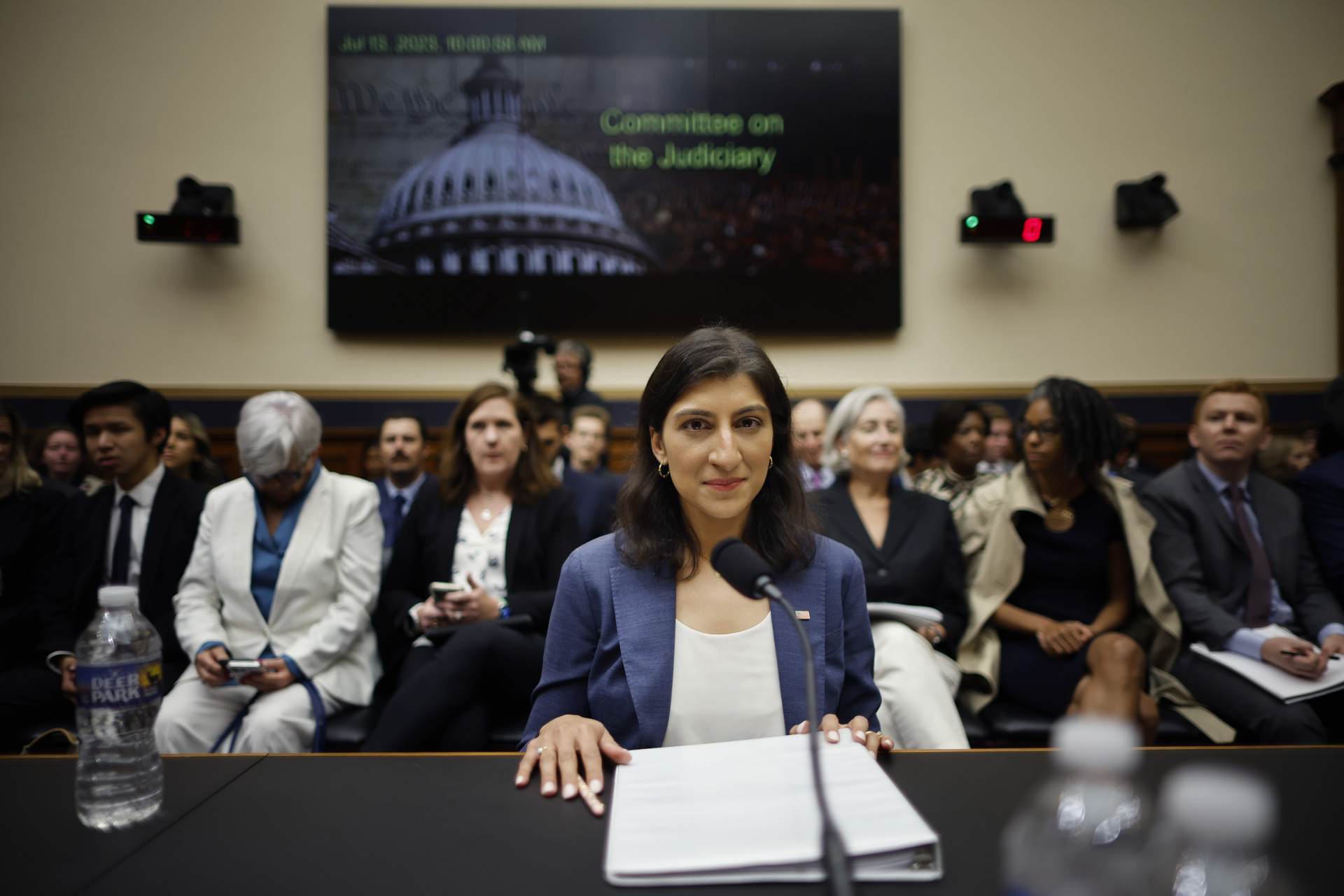Tech billionaire Reid Hoffman, who once visited Jeffrey Epstein’s private island, is bundling millions of campaign donations from Silicon Valley giants for Vice President Kamala Harris’s presidential bid. With those donations comes some demands, requests for Harris to fire the nation’s top trust-buster Lina Khan from the Federal Trade Commission (FTC) while also throwing out United States tariffs on foreign imports.
Hoffman, the co-founder of LinkedIn and a top Democratic Party donor, is reportedly set to bundle some $100 million from elites in Silicon Valley for Harris’s presidential run.
In an interview with CNN, Hoffman suggested he wants Harris to return the U.S. to a free trade consensus that has ruled in Washington, DC, for decades — resulting in the loss of millions of American jobs, particularly in the manufacturing sector.
Hoffman said he and other billionaire donors are unbothered by President Joe Biden and Harris’s push to raise corporate taxes because the impact would be minuscule.
“Trump wants tariffs which is anti-business … makes this a very strange election indeed because I think actually Vice President Harris is much more of the pro-business candidate than Trump and Vance,” Hoffman told CNN:
I think what’s most important for business is stability of the country, unity, rule of law. And a percent difference in corporate tax … is far, far less important. [Emphasis added]
Former President Donald Trump has said he wants to see across-the-board tariffs on particularly Chinese imports to reshore manufacturing back to the U.S.
CNN reporter Matt Egan said Hoffman also mentioned that he wants FTC Chair Lina Khan, the nation’s top trust-buster, fired under a potential Harris administration.
“In particular, he strongly criticized Lina Khan, the FTC chair. He said that Lina Khan is ‘waging war on American business’ and he went so far as to say that he hopes that a President Harris would replace Lina Khan at the FTC,” Egan reported.
Hoffman, for years, has made clear he opposes efforts to break up Big Tech corporations and rigorous antitrust enforcement.
“The notion of ‘Oh, we should be breaking up these companies’ is bad from an innovation standpoint … so that’s part of the reason why I [want to] shape and make it as good outcomes for society but not an antitrust action,” Hoffman told the Washington Post in 2021.
The New York Times reported that Harris may already be caving to big donor requests, such as those from Hoffman, regarding Khan’s role at the FTC:
Business leaders have also bristled at the actions of the Federal Trade Commission’s chair, Lina Khan, who has tried to crack down on corporate mergers. [Emphasis added]
As vice president, Ms. Harris has voiced support for regulating artificial intelligence. But she has expressed skepticism of Ms. Khan’s expansive view of antitrust powers, according to a donor who has spoken privately with the vice president. [Emphasis added]
Khan has won praise from former President Donald Trump’s running mate, Sen. JD Vance (R-OH), as well as other conservatives such as Rep. Matt Gaetz (R-FL), Rep. Ken Buck (R-CO), and Sen. Josh Hawley (R-MO) for her seeking to break up Big Tech, corporate monopolies, and eliminate noncompete agreements for employees.

Federal Trade Commission Chair Lina Khan prepares to testify before the House Judiciary Committee in the Rayburn House Office Building on Capitol Hill on July 13, 2023, in Washington, DC. (Chip Somodevilla/Getty Images)
In a recent Wall Street Journal profile of Khan, the paper coined such Khan supporters “Khanservative Republicans” — a nod to the party’s populist-nationalist wing that wants to see a crackdown on the monopolistic power that multinational corporations have in the U.S. economy.
“I look at Lina Khan as one of the few people in the Biden administration that I think is doing a pretty good job,” Vance said a few months ago of Khan’s record as FTC chair.
Gaetz interviewed Khan in August 2023 for Newsmax where he praised her efforts to crack down on what he said are abuses by Big Tech corporations against American consumers and smaller businesses.
Khan told Gaetz of her views on monopoly power:
When we think about issues relating to concentration of power, and in the same ways that you don’t want a concentration of power in the political sphere, Congress passed the antitrust and anti-monopoly laws to make sure that we had decentralization and competition in our commercial sphere so that any decision that any one person made, it wasn’t affecting whether people could be seen or heard in the marketplace of ideas. And so we think that robust competition is a key way to fight censorship, is a key way to make sure that people have more choice in the marketplace. [Emphasis added]
The Wall Street Journal editorial board has seethed over Hawley’s support for Khan at the FTC, publishing two editorials portraying both officials as anti-business.
Hawley was a leading voice in the Senate among Republicans opposing non-compete agreements from employers. Khan has since turned Hawley’s complaints about non-competes into action, issuing a regulation to ban such agreements by employers on their employees.
This week, a federal judge upheld the FTC’s ban on non-compete agreements in a major judicial win for Khan.
John Binder is a reporter for Breitbart News. Email him at jbinder@breitbart.com. Follow him on Twitter here.

COMMENTS
Please let us know if you're having issues with commenting.